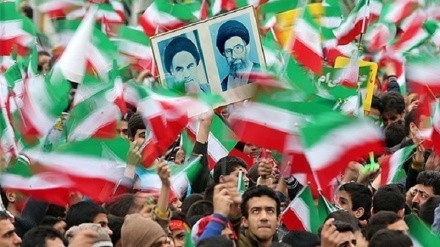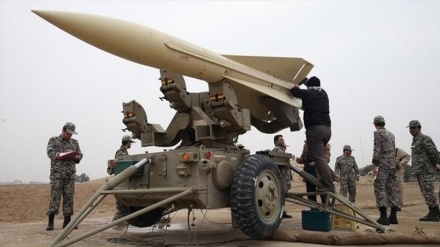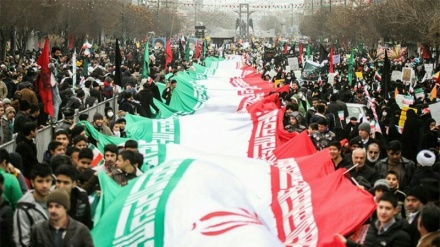Iran 40 years after victory of the Islamic Revolution (19)
The illegal sanctions of the past 40 years have been part of the American hostile policies against the Islamic Republic of Iran. The long list of these illegal sanctions dates back to the capture of the US den of espionage in Tehran which the Americans liked to call it euphemistically as the US embassy.
On November 14, 1979, then US president, Jimmy Carter, following the espionage scandal in Iran, issued the freezing of the accounts of Iranians in America. As a result, the American regime in 1980 announced the imposition of vast economic sanctions against Iran.
When a bomb blast occurred in Beirut in 1984, the United States pointed the finger of accusation toward the Iran and this led to another pretext to aggravate sanctions against Iran. Thus, Iran was added to the list that the United States liked to dub it as the sponsors of terrorism. As for investment and trade, too, on April 30, 1995, then US president, Bill Clinton, announced that he would enforce comprehensive embargos on the US trade and investment in Iran. The bill of Iran-Libya sanctions, ratified in 1996, was another hostile measure that banned the US companies from investing in Iran’s energy sector. Bill Clinton, by execution of this law, implemented more sanctions under the title of Damato law and Ilsa law. This trend was intensified in 2001 and the two new currents appeared in the arena of the US’s economic sanctions against Iran: firstly, announcement and enforcement of sanctions against nongovernmental persons and organs; secondly, increased expansion of smart sanctions.
The US Treasury imposed many financial sanctions which included embargo on dispatching of presents worth above 100 dollars to financial dealings with Iranian companies. On October 25, 2007, the US Treasury, by piling up ridiculous allegations, added a list of Iranian banks and a number of institutions and companies affiliated to the IRGC to its previous list of sanctions; and under the pressures of the Zionist lobby (AIPAC), the World Bank announced that it will refuse rendering services to these banks and institutions.
Former US president, Barack Obama, who had announced during presidential campaigns that he was ready to negotiate with Iran unconditionally, said on March 12, 2009 that he would extend this ‘National Emergency’ in relation with Iran for one more year.
Describing Iran as a “nonconventional and extraordinary threat”, for the US national security, he said the measures and policies of the Iranian government are in contrast to the American interests. In late 2011, the United States banned foreign companies and financial institutions from trade with the Iranian sanctioned banks and the Central Bank of the Islamic Republic of Iran.
After these measures, the project of theft of Iran’s properties was started. In the aftermath of the inside-job (9/11), George Bush approved a law that authorized the freezing of the properties of real and legal persons who were called as sponsors of terrorism. In view of this, every now and then a number of real and legal persons in Iran and abroad were added to the list of sanctions.
Fabrication of files on Iran’s peaceful nuclear issue stirred another wave of sanctions against Iran. This political current, through the US pressure and insinuation, forced the UN Security Council to pass resolutions against Iran’s peaceful nuclear program. The UNSC ratified 6 resolutions against Iran’s nuclear issue and the Islamic Republic was put under chapter 7 of the UN charter. This script was finally halted on July 20, 2015 with the passing of resolution 2231 and signing of Joint Comprehensive Plan of Action (JCPOA). JCPOA was supposed to annul all sanctions in a certain timetable. But less than two years from the agreement, Donald Trump described it as a bad agreement to find a new excuse for restoring of sanctions against Iran. On May 8, 2018, he announced US’s official exit from the JCPOA and signed the returning of unilateral Iran sanctions. The United States shamelessly asks other governments to violate JCPOA. It even threatens all countries and international organs that they would be punished if they practice resolution 2231.
The US policy vis-à-vis JCPOA and restoration of sanctions can be summarized as: Forcing Iran to grant more concessions. But the US must have learnt that Iran will never fall in the trap of Washington. The Leader of the Islamic Revolution said on the lessons of JCPOA, “Now after exposure of America’s mistrust on one hand and the remarks of our officials on the other hand, it can be said that JCPOA was another unsuccessful experience of engagement and negotiation with America. This is JCPOA as an example and an experience for us. They apparently promise and wheedle but in practice they conspire, destroy, and obstruct the progress of affairs. This is America. This is experience.”
RM/ME


